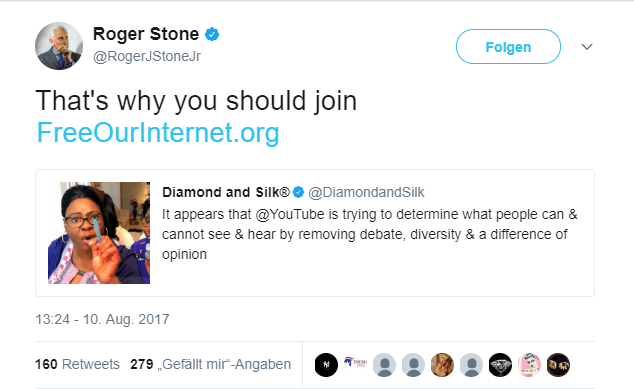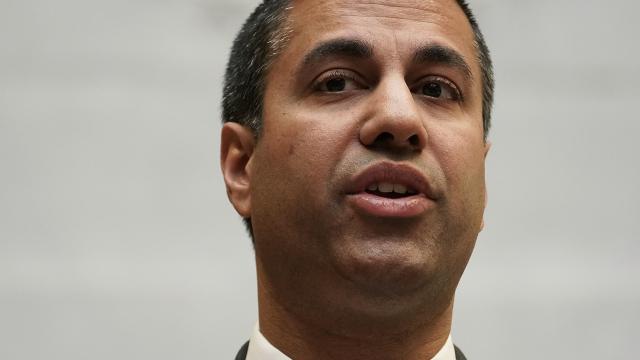In a bipartisan letter, two US senators called on the FCC to investigate the identity theft and fraud in public comments collected by the agency during its proposal to rollback net neutrality protections last year.
Senators Jeff Merkley, Democrat of Oregon, and Pat Toomey, Republican of Pennsylvania, are among the estimated “two million Americans” whose identities were used to file comments to the FCC without their consent.
“The federal rulemaking process is an essential part of our democracy and allows Americans the opportunity to express their opinions on how government agencies decide important regulatory issues,” the pair of lawmakers wrote. “As such, we are concerned about the aforementioned fraudulent activity. We need to prevent the deliberate misuse of Americans’ personal information and ensure that the FCC is working to protect against current and future vulnerabilities in its system.”
“We encourage the FCC to determine who facilitated these fake comments,” the letter continues. “While we understand and agree with the need to protect individuals’ privacy, we request that the FCC share with the public the total number of fake comments that were filed.”
So were “fake comments” filed using stolen identities? Almost certainly. The fact that two US senators of rival parties have signed a letter saying as much is a clear indication that some type of fraud occurred. But how many of the comments used stolen identities? Despite exhaustive digging by data scientists, journalists, and independent researchers, there’s no reliable figure thus far.
“People are losing faith in their democracy. The FCC’s repeal of net neutrality is set to go into effect in a matter of weeks, despite the fact that the process around it has been riddled with serious issues of fraud and abuse that the agency has thus far refused to address,” said Evan Greer, deputy director of the pro-net neutrality group Fight for the Future.
A majority of the 23 million comments received by the FCC last year were delivered via form submission; letters pre-written by activists, which users merely “signed” before clicking “send.” This is not unusual. Although the FCC doesn’t actually read or care whatsoever about these comments – it generally only takes into consideration those submitted by lawyers and industry experts – activists enjoy a ton of press when “millions” of comments are delivered and it helps drum up public support for their cause.
The FCC’s IT workers even privately coordinate with large advocacy groups to ensure that their comments can be submitted in bulk without overloading its servers. Private companies also do this, including CQ Roll Call, publisher of the the Washington DC newspaper Roll Call. A spokesperson for the company told Gizmodo in October: “CQ has had a system to direct comments to ECFS for more than a year. CQ’s advocacy system did deliver millions of comments to the ECFS for the docket Restoring Internet Freedom.”
Seems legit pic.twitter.com/TgizemRNqn
— dell cameron (@dellcam) December 19, 2017
All told, only 6 per cent of the comments were unique, according to Pew Research. Others, however – potentially millions – were likely submitted by bots. And there’s substantial evidence, albeit mostly anecdotal, to support the theory that hundreds of thousands, if not millions of people’s names and addresses were used without their consent. One independent investigation found that more than 65 per cent of the personal data used in identical FCC letters overlapped with data exposed in data breaches; though the database checked against does contain hundreds of millions of email accounts, many still likely in use.
FCC Chairman Ajit Pai has for the most part ignored cries over the use of fake accounts and has been combative of calls to investigate the matter, even after law enforcement officials began floating the idea that a federal crime may have been committed.
Sources told Gizmodo last year that Pai had quietly issued a directive telling the FCC’s staff not to make any attempt to filter out fake comments during the proceeding; it was believed that doing so would likely backfire, leading to accusations that the agency was censoring pro-net neutrality comments. To be fair, this likely would have occurred.
The decision was reflected publicly in remarks by Pai who once said the FCC “erred on the side of openness,” with regard to judging whether comments were legitimate. However, this tactic, too, backfired spectacularly.
More than 440,000 identical anti-net neutrality comments appeared in the FCC docket using language pulled from a 2010 press release authored by a group called the Center for Individual Freedom (CFIF), which also ran a submission page containing a pre-written letter to the FCC calling the net neutrality regulations “an extraordinary and unnecessary amount of regulatory control over the internet.”
Over 7 million comments included the phrase: “I am in favour of strong net neutrality under Title II of the Telecommunications Act.” Analysis of the comments performed by Chicago developer Chris Sinchock and published on Medium revealed that thousands of similarly-written pro-net neutrality comments as early as May 2017 containing boilerplate language such as, “I specifically support strong Net Neutrality backed by Title 2 oversight of ISPs.”
Another group, Free Our Internet, which is linked to former Trump campaign aide Christie McNally, is responsible for over 100,000 comments that read, in part: “…we are sick and tired of all the CONTROL FREAK elite loons that want to to dominate the people of the UNITED STATES, and for the record, know that the masses WILL NOT TOLERATE this treason against us.”

The FCC comment process is, in other words, a complete shitshow and practically worthless for gauging accurately the public sentiment on any high-profile issue. And frankly, even if 99 per cent of the comments had been authentic, written by actual Americans who favoured the Obama-era rules, the FCC still would have voted to repeal them. Nothing was going to stop that.
Actual research into how the public feels about net neutrality reveals that an overwhelming majority of the country opposes the FCC’s decision to roll back the protections. Even as high as 82 per cent of Republicans are in favour of maintaining the rules, which the agency will formally disown a few weeks from now. Net neutrality remains controversial only in the nation’s capital among politicians who are either bought and paid for by the telecom industry or opposed to it for no reason other than to show loyalty to the Trump administration’s hugely unpopular anti-regulatory agenda.
The only question that remains is whether there was a concerted effort on the part of a few oblivious trolls to commit widespread fraud during the net neutrality proceedings. But as it has repeatedly demonstrated, the FCC would rather not know the answer. But who knows? Maybe two US senators demanding a response will shake something loose.
It’s just as likely, however, that the FCC will respond with some vague language designed to obfuscate any hint of mismanagement or culpability on its part, citing, probably, the need to protect people’s privacy or some other such nonsense. Over the past year, bullshitting lawmakers is the one thing we can honest agree the FCC has gotten better at.
